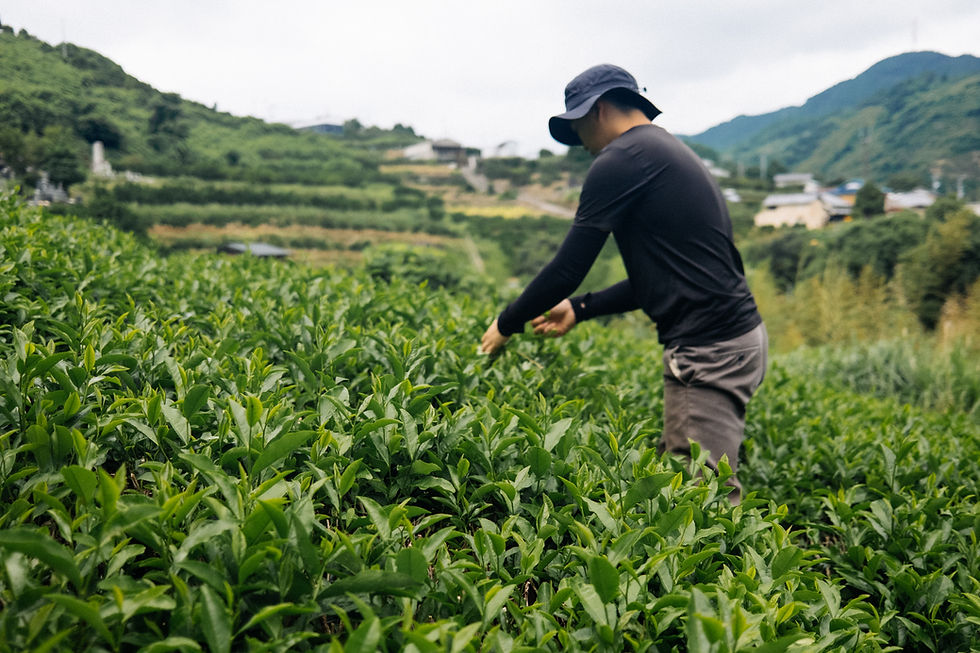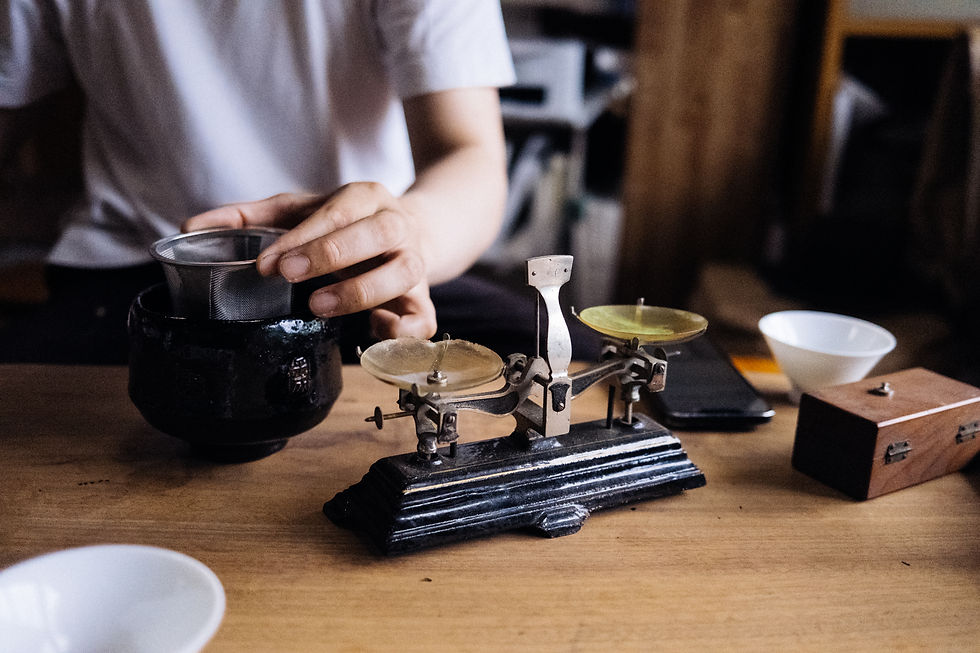SUGIYAMA — Steady Hands, and a Century of Tea
- chanwenjian
- Mar 31
- 2 min read
Updated: Aug 5
Driving through the winding hills of Shimizu, Shizuoka, it’s easy to think you’re lost — the narrow roads barely wide enough for a single car to pass. At the peak, I got out of the car to check if I’d gone the wrong way; and that’s when 24-year-old Tadashi Sugiyama came round the corner on foot and waved me in.

He invited me into his tea farm that has been in his family for over 100 years. Today, Tadashi tends to five hectares of tea fields alongside his younger brother and two trusted farmhands, while his mother handles the accounts. While he once dreamed of becoming a chef, a family tragedy seven years ago changed his path. He stopped high school midway to return home to helm the farm in his teens, stepping into a role that would intimidate many. When asked if he ever felt daunted by his young age and relative inexperience, he replied straight and true — “Initially, yes. But I learnt everything from my forefathers, and I know I make good tea — that’s all I focus on.”
Tadashi's quiet resolve shows in more than words. Where other farms shrink with each generation, he now acquires abandoned farmland nearby and works to revive it — an effort he knows will take at least six years to bear fruit with his small four-man team.

Walking up the slopes, Tadashi explains that these mountains and valleys protect the crop from pests by the strong winds channeled through, reducing the need for pesticides.
Unlike many large operations that use machines for speed, Tadashi insists that every leaf be hand-picked — no machines to tear indiscriminately through leaf and stem. “A machine doesn’t know which leaf is best,” he told me. “Or the right height to pick it.”
For their matcha, the leaves are then stone-milled, not steel-ground, to ensure the particles remain fine and even, all while preserving flavour and texture.

Inside his small office, a simple wooden cupboard overflows with trophies from tea competitions — a testament to the farm’s dedication to quality. Over the decades, their farm has quietly built a reputation for producing some of Japan’s best tea, winning honours such as the Minister of Agriculture, Forestry and Fisheries Award and the Shizuoka Prefecture Tea Fair Gold Prize for its exquisite sencha — recognition earned through steady, careful work rather than big promises.

Sitting in that modest room surrounded by old trophies and fresh tea leaves, Tadashi's dedication to uphold this legacy felt like proof that real craft doesn’t shout — it endures. One family, and a quiet promise that good tea still comes from people who care more about doing it right than doing it fast.


